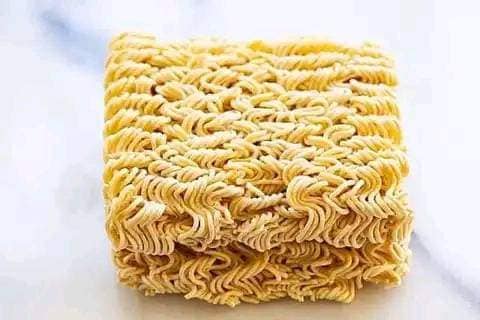Estimated reading time: 3 minutes
Feeding your kids noodles might seem like an easy and quick solution, but it comes with hidden dangers to their health. Many people, especially parents, don’t realize that noodles, especially instant ones, are not a nutritious choice for children. Here’s why you should reconsider giving them to your kids:
Lack of Nutrients
Noodles are primarily made from refined wheat, which has little to no nutritional value. Children need a diet rich in essential nutrients like vitamins, minerals, and protein to grow strong and healthy. Unfortunately, noodles don’t provide these important nutrients, making them more of an empty-calorie food.
Noodles contain harmful ingredients
One of the most concerning things about noodles is the number of artificial additives they contain. They often have MSG (monosodium glutamate), which is used to enhance flavor. While it might make the noodles taste better, MSG can have negative effects on health when consumed in large amounts. It’s linked to headaches, dizziness, and even long-term health problems like neurological damage.
Additionally, many noodles are preserved with chemicals that could be carcinogenic, meaning they have the potential to increase cancer risk over time.

Its impact on the digestive system
Noodles contain ingredients that are tough on the digestive system. For example, a wax coating is applied to prevent them from sticking together while cooking. This wax is not something your body can easily break down.
In fact, it can take up to two days for the body to fully process it. This means your child’s digestive system is working overtime to get rid of harmful substances instead of absorbing nutrients from healthier foods.
ALSO READ
- The Body Keeps Count (Part 3): Why You Need Vegetables in Your Diet
- Avoiding these 5 foods can reduce menstrual cramps for women on their period
- The top 10 most overrated foods in Nigeria
- Eating these 6 fruits can boost a man’s sexual drive – experts
- 8 medical reasons why you see your period twice a month
Long-term health consequences
Eating noodles regularly can lead to more than just immediate digestive issues. Over time, the chemicals and additives found in noodles can inflame the gut, which can result in poor digestion and other gastrointestinal issues.
Some studies suggest that regular consumption of highly processed foods like noodles may harm taste buds and interfere with dopamine receptors, which play a role in the brain’s pleasure and reward system.
How to choose real foods for your kids
The convenience of noodles is tempting, especially for busy parents. However, opting for real, whole foods, like fresh fruits, vegetables, and grains, provides children with the nutrients they need to develop properly. These foods are not only healthier but can also help establish good eating habits from an early age.
What about homemade, whole-food noodles?
While store-bought, processed noodles are concerning, it’s important to highlight that not all noodles are unhealthy. The issue lies mainly in the ingredients and how the noodles are processed.
For example, homemade noodles made from organic wheat flour, fresh eggs, and high-quality olive oil can be a healthy and wholesome meal option. These noodles are free from harmful additives and preservatives.
Similarly, buckwheat-based soba noodles, especially when made from organic ingredients, are much more nutrient-dense and beneficial for digestion.
Even some commercially available pasta can be a better option, particularly those made from non-US grown, whole wheat, and organic ingredients.
In fact, people with gluten sensitivities sometimes find that they can eat pasta made from Italian-grown wheat without any problems. This could be because the way wheat is grown and processed in some countries, like Italy, is different from mass-produced wheat found elsewhere.
In summary, while noodles may seem like an easy meal option, the long-term effects on your child’s health make it worth reconsidering. Instead of choosing quick fixes, try incorporating wholesome, nutrient-rich foods into your child’s diet to support their growth and well-being.







